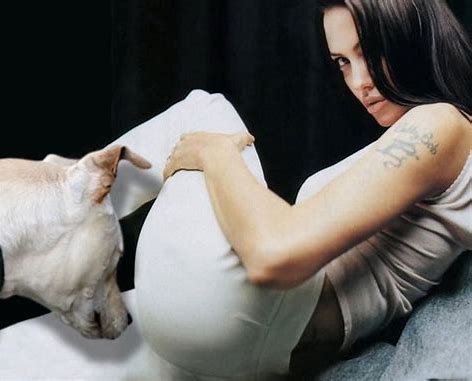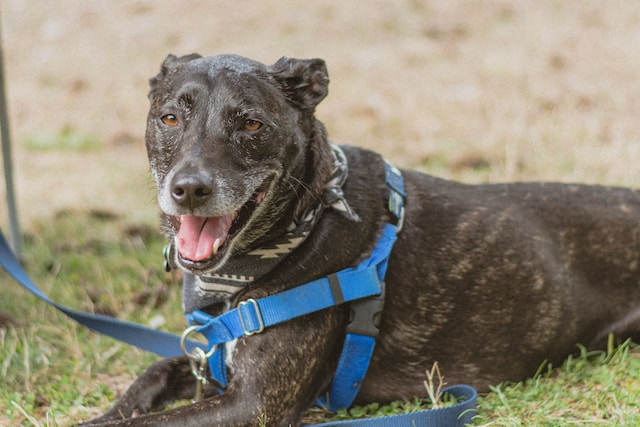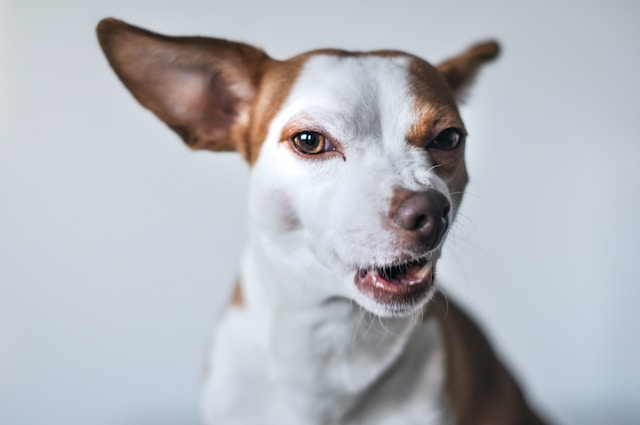Why Do Dogs Eat Rabbit Poop? The Curious Behavior Explained

Why do dogs eat rabbit poop? It’s a common question among dog owners and one that may seem puzzling at first. But don’t worry, I’m here to shed some light on this quirky canine behavior!
First off, let’s address the elephant in the room – yes, dogs do indeed have a tendency to munch on those little pellets of rabbit poop. While it may seem gross to us humans, there are a few reasons why dogs engage in this seemingly strange behavior.
In this article, we’ll explore the reasons behind your dog’s fascination with rabbit poop and discuss whether it’s a cause for concern. So if you’ve ever caught your furry friend indulging in this interesting snack, keep reading to find out why and what you can do about it.
Reasons Why Dogs Eat Rabbit Poop
Dogs have a natural instinct to explore and investigate their environment, including any interesting smells or objects they come across. Eating rabbit poop, also known as coprophagia, is a behavior that some dogs may exhibit. While it may seem unappetizing to us, there are several reasons why dogs engage in this behavior.
Scents and Attraction
One possible reason is that rabbit poop has a distinct smell that can be attractive to dogs. The unique scent may pique their curiosity, leading them to investigate and potentially consume rabbit droppings. Dogs are known to have a keen sense of smell, and they may be drawn to the aroma of rabbit feces.
Nutritional Benefits
Another reason dogs may eat rabbit poop is the potential for nutritional benefits. Rabbit feces contain undigested plant material that is rich in fiber. If a dog’s diet is lacking in fiber or other nutrients, they may seek out alternative sources, such as rabbit droppings, to supplement their nutritional needs. However, it’s important to note that a well-balanced diet specifically formulated for dogs is the best way to meet their nutritional requirements.
Instinctual Behavior
Dogs are descendants of wolves, which are known to scavenge for food. In the wild, wolves may consume the feces of other animals as a survival mechanism, especially when food is scarce. This behavior can be ingrained in dogs through their ancestral instincts. While domesticated dogs have access to regular meals, the instinct to scavenge and consume feces may still be present in some individuals.
It’s important to note that while eating rabbit poop may not necessarily harm your dog, it’s still advisable to discourage this behavior. Rabbit feces may contain parasites or bacteria that can be harmful to dogs. Additionally, if your dog consumes a large amount of rabbit droppings, it may upset their stomach or cause digestive issues. If this behavior persists or causes health problems, it’s recommended to consult with a veterinarian for guidance and potential solutions.
The Attraction of Rabbit Poop to Dogs
Rabbit poop, also known as rabbit droppings or pellets, can be surprisingly attractive to dogs. While it may seem strange to us, there are a few reasons why dogs may be drawn to rabbit poop. Understanding these reasons can help dog owners address this behavior and keep their pets safe.
- Scent: Rabbit poop has a strong smell that can be enticing to dogs. The scent can be intriguing and even appetizing for some dogs, leading them to sniff, investigate, and potentially consume the droppings.
- Size and texture: The small size and pellet-like shape of rabbit droppings may resemble treats or snacks to dogs. This can trigger their natural instinct to scavenge or consume small objects.
- Nutritional content: Rabbit droppings can contain undigested plant material, such as grass or hay, which can be mildly appealing to dogs who are omnivorous and have a varied diet. The presence of fiber and other nutrients may add to the attraction.
- Curiosity: Dogs are naturally curious animals, and rabbit droppings may simply be a new and intriguing object to investigate. The different appearance and smell can pique their interest and lead to exploration.
- Behavioral reinforcement: If a dog has had previous positive experiences with rabbit poop, such as finding a hidden treat or receiving attention or praise when interacting with it, they may be more likely to seek it out in the future.
- Learned behavior: Some dogs may learn to eat rabbit droppings from observing other dogs or wildlife. They may imitate this behavior as a result.
While it’s not uncommon for dogs to be attracted to rabbit poop, it’s important for dog owners to discourage this behavior due to potential health risks. Rabbit droppings can carry parasites or bacteria that can be harmful to dogs. Additionally, consuming a large amount of rabbit poop can cause gastrointestinal upset or blockages. Keeping dogs away from areas where rabbits frequent, promptly picking up or removing any droppings, and providing appropriate chew toys or treats can help redirect this behavior and keep dogs safe and healthy.
Nutritional Value of Rabbit Poop for Dogs
Rabbit poop may not sound like a typical dog treat, but it can actually provide some nutritional benefits for your furry friend. While it may seem strange, rabbits have a unique digestive system that allows them to extract more nutrients from their food, resulting in feces that are rich in vitamins and minerals.
Possible Health Risks of Dogs Eating Rabbit Poop
Introduction
Dogs are known to have curious appetites and may sometimes engage in behaviors that are not ideal for their health. One such behavior is eating rabbit poop, which can pose potential health risks for dogs. While it may seem harmless or even natural for dogs to indulge in this behavior, it is important for dog owners to be aware of the potential health consequences it can have on their furry friends.
Potential Infections and Parasites
Rabbit poop can contain various pathogens, bacteria, and parasites that may negatively affect the health of dogs. These include parasites like coccidia, giardia, and even worms. Ingesting these parasites can lead to gastrointestinal infections and other health issues in dogs. It is essential to prevent dogs from consuming rabbit poop to avoid these potential infections.
Risks of Poisoning
Rabbit poop may contain substances that are toxic to dogs. This can be due to the rabbit’s diet, such as the consumption of poisonous plants or chemicals. Dogs that eat rabbit poop may be at risk of poisoning if the poop contains any toxic substances. Common symptoms of poisoning in dogs include vomiting, diarrhea, lethargy, and in severe cases, seizures or organ failure.
Dietary Imbalance
Rabbit poop, while not toxic in itself, can disrupt a dog’s balanced diet. Eating rabbit poop may lead to an imbalance in the dog’s nutrient intake, potentially causing deficiencies or excesses in certain nutrients. Dogs require a specific balance of nutrients to maintain optimal health, and consuming rabbit poop can interfere with this balance.
Preventing Dogs from Eating Rabbit Poop
To prevent dogs from consuming rabbit poop, it is important to supervise them during outdoor activities, especially in areas where rabbits are present. Keep dogs on a leash or provide a secure fence to limit their access to rabbit droppings. Training dogs to stop the behavior and providing them with appropriate chew toys or treats can also help redirect their attention away from rabbit poop.
In conclusion, it is crucial for dog owners to recognize the potential health risks associated with dogs eating rabbit poop. By understanding the dangers of this behavior, dog owners can take the necessary precautions to prevent their furry companions from engaging in this unhealthy habit. Keeping dogs away from rabbit droppings can protect them from infections, parasites, poisoning, and dietary imbalances, ensuring their overall well-being and health.
Preventing Dogs from Eating Rabbit Poop
Understanding the Behavior
Dogs have a natural inclination to explore and sometimes eat things they find in their environment, including rabbit poop. Understanding why dogs are attracted to rabbit poop can help in preventing this behavior. Rabbits produce soft, pellet-like droppings that may resemble treats to dogs, and the scent of rabbit poop can be appealing to their sensitive noses.
Promoting Proper Nutrition
Ensuring that your dog is getting a balanced and nutritious diet is essential in curbing their desire to eat rabbit poop. A well-balanced diet that meets all your dog’s nutritional needs can help prevent them from seeking out alternative sources of nutrients, such as rabbit droppings. Consult with your veterinarian to ensure your dog’s diet is appropriate for their age, size, and overall health.
Supervision and Training
One way to prevent dogs from eating rabbit poop is through supervision and training. Keep a close eye on your dog when they are outside, especially in areas where rabbits are known to frequent. If you notice your dog showing interest in rabbit droppings, redirect their attention to a more appropriate activity or reward them for ignoring the poop. Basic obedience training and commands like “leave it” or “drop it” can also be helpful in preventing this behavior.
Managing the Environment
Modifying the environment can also help prevent dogs from accessing rabbit poop. If you have a backyard, consider installing a fence or barrier to keep rabbits out and prevent your dog from coming into contact with their droppings. Alternatively, you can create designated areas for your dog to eliminate, which are free from rabbit droppings. Cleaning up rabbit poop promptly and regularly can also discourage your dog from seeking it out.
Providing Alternatives and Distractions
Providing your dog with appropriate alternatives and distractions can redirect their attention away from rabbit poop. Offer them engaging and interactive toys, play fetch or engage in training sessions to keep their minds occupied. Additionally, taking your dog for regular walks or providing them with ample mental and physical stimulation can reduce their desire to eat poop, including rabbit droppings.
Consulting with a Veterinarian
If your dog’s behavior of eating rabbit poop persists or becomes a concern, it is advisable to consult with a veterinarian. They can assess your dog’s health and behavior, provide further advice specific to your dog’s needs, and address any underlying issues that may be contributing to this behavior.
Training Tips to Stop Dogs from Eating Rabbit Poop
If you have a dog that has developed a habit of eating rabbit poop, it’s important to address this behavior for both their health and safety. Rabbit droppings can contain parasites or harmful bacteria that can make your dog sick. Here are some training tips to help stop dogs from eating rabbit poop:
- Supervise outdoor time: Whenever your dog is outside, keep a close eye on them to prevent them from accessing rabbit droppings. Use a leash or a fenced area to limit their access to areas where rabbits may defecate.
- Teach “leave it” command: Train your dog to respond to the “leave it” command. Start by showing them a treat or toy and saying “leave it.” When they look away from the treat or toy, reward them with praise and a different treat. Practice this command regularly and gradually introduce distractions such as rabbit droppings.
- Provide alternatives: Make sure your dog is getting enough mental and physical stimulation. Provide them with appropriate chew toys or puzzles to keep them occupied and satisfied.
- Maintain a healthy diet: Ensure your dog is receiving a balanced and nutritious diet. Sometimes, dogs may eat rabbit droppings due to a lack of essential nutrients. Consult with your veterinarian to ensure your dog’s dietary needs are being met.
- Use deterrents: There are products available that can be applied to rabbit droppings to make them unappetizing to dogs. These deterrents usually have a strong smell or taste that discourages dogs from consuming them. Consult with your veterinarian to find a safe and effective deterrent for your dog.
Consistency and positive reinforcement are key when training your dog to stop eating rabbit poop. Be patient and reward them for good behavior. If the behavior persists or if you have concerns about your dog’s health, it is always best to consult with a professional dog trainer or your veterinarian for further assistance.
Healthier Alternatives for Dogs
Choosing Nutritious Dog Food
When it comes to feeding your dog, choosing a nutritious dog food is essential for their overall health and well-being. Look for dog foods that contain high-quality protein sources, such as chicken, turkey, or fish. Avoid dog foods that contain fillers, artificial ingredients, or excessive amounts of grains or carbohydrates. Consulting with a veterinarian can help you select a dog food that meets your dog’s specific nutritional needs.
Offering Fresh Fruits and Vegetables
In addition to their regular dog food, adding fresh fruits and vegetables to your dog’s diet can provide additional nutrients and variety. Some safe options include carrots, apples, blueberries, and green beans. Be sure to wash and prepare the fruits and vegetables properly, removing any seeds or pits that may be toxic to dogs. It’s important to consult with a veterinarian to ensure that the fruits and vegetables you offer are safe for your dog to consume.
Providing Healthy Treat Options
Treats can be a great way to reward and train your dog, but it’s important to choose healthier options that are not high in fat, sugar, or artificial ingredients. Look for treats that are made with natural ingredients and are specifically formulated for dogs. You can also make homemade treats using dog-friendly ingredients like peanut butter, pumpkin, or oats. Remember to give treats in moderation to avoid overfeeding and weight gain.
Ensuring Proper Hydration
Just like humans, dogs need access to clean and fresh water at all times. Proper hydration is important for their overall health and helps maintain normal bodily functions. Make sure to provide your dog with a clean water bowl and refill it regularly. Consider using a water fountain or providing ice cubes on hot days to encourage your dog to drink more water.
Consulting a Veterinarian
When it comes to the health and well-being of your beloved pet, consulting a veterinarian is essential. Veterinarians are highly trained professionals who specialize in the medical care of animals. They have the knowledge and expertise to diagnose and treat various health conditions in pets, provide preventive care, and offer invaluable advice on nutrition, behavior, and overall pet care.
Whether you have a dog, cat, bird, reptile, or any other type of pet, scheduling regular check-ups with a veterinarian is crucial for maintaining their health and preventing potential issues. Veterinarians can perform thorough examinations, administer vaccinations, conduct diagnostic tests, and prescribe medications or treatments when necessary. They can also provide guidance on proper nutrition and offer recommendations on the best ways to keep your pet happy and active.
In addition to regular check-ups, it’s important to consult a veterinarian if you notice any unusual behavior, symptoms of illness, or injuries in your pet. Veterinarians can assess the condition, provide a diagnosis, and recommend appropriate treatment options to ensure a speedy recovery.
Furthermore, veterinarians are an invaluable resource when it comes to preventive care. They can offer advice on parasite control, dental care, and vaccinations to keep your pet protected from common diseases and conditions. They can also provide guidance on grooming, training, and behavioral issues, ensuring a harmonious relationship between you and your pet.
In conclusion, consulting a veterinarian is essential for maintaining your pet’s health and well-being. Regular check-ups, preventive care, and seeking professional advice when needed can help ensure that your furry or feathered friend lives a long, healthy, and happy life.
Conclusion
When it comes to dogs eating rabbit poop, it’s important for dog owners to understand the reasons behind this behavior and take steps to prevent it. While the attraction to rabbit poop may be natural for some dogs, there are potential health risks associated with consuming it. Rabbit poop can contain parasites, bacteria, and toxins that can harm dogs and lead to gastrointestinal issues or dietary imbalances.
To prevent dogs from eating rabbit poop, it’s important to supervise outdoor time, train them on the “leave it” command, provide alternative distractions, and keep a balanced and nutritious diet. Modifying the environment by installing barriers or removing rabbit droppings promptly can also help deter this behavior.
Consulting with a veterinarian is crucial to address any concerns or health issues related to your dog’s behavior. Vets can provide guidance on proper nutrition, offer deterrents to discourage consumption of rabbit poop, and address any underlying health conditions or nutritional deficiencies.
Remember, the health and safety of your dog should always be a top priority, so take the necessary steps to prevent them from eating rabbit poop and ensure they have a balanced diet and proper care.






